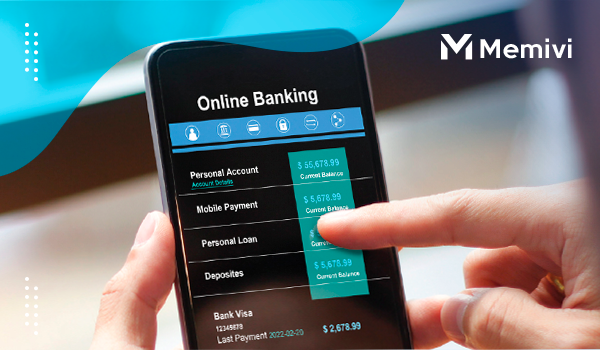
When people start a business, they often don’t think of the advantages that come with it. This can be very beneficial because the disadvantages to having your own business can be very high. The advantages of having your own business are many. You have the freedom to work when you want and where you want. You are able to hire your employees as you see fit. You get to work as hard as you want without being restricted to what other people think is a “reasonable” workload.
One of the disadvantages is that you have to be your own boss. You’ll need to take care of everything on your own. You’ll need to manage your time. You’ll also need to manage your employees. If you are just starting your own business, it can be hard to manage yourself. This can result in mistakes or a loss of money.
Now, one way that you can increase your productivity to avoid these advantages and make sure that you are staying on track is to use a project management tool. There are many different project management tools that you can use, so you’ll have to do your research. There are a few that stand out, including Trello, Basecamp, Teamwork, Asana, and more.
Overview
It’s important to have a system in place when managing your finances. Without a system, it can be easy to end up with large amounts of debt. It’s important to keep your business running, which is why it’s important to properly manage your finances. There are a few ways to do this.
One way is to set up a budget, where you list all of your expenses and income coming into and out of your business. Another way is to create a cash-flow forecast, which will help you determine what your business needs in order to make money and how much you have coming in. It’s also important to keep track of your expenses and income so that you know what you’re spending your money on.
But if you were wondering what is the most important way to properly manage your finances, it’s setting up a business bank account.
What is a Business Bank Account?
Business bank accounts are accounts that are only used for business transactions. These accounts help your business to be more organized, as well as to save money. Banks offer a variety of different business bank accounts. They are usually set up with an initial deposit and have a set amount of transactions per month. You can use a business bank account to manage your finances, as well as to pay your employees. You can also use a business bank account to maintain a business credit card.
If you have a business bank account, your business will be able to monitor its financial activity. You’ll also be able to keep track of what you’ve spent on each transaction. Furthermore, this type of account helps businesses to have a safe place to store their funds, to save money, and to take advantage of low interest rates. Business bank accounts also provide businesses with a place to save for the future and for retirement.
How to Open a Business Bank Account?
How do you open a business bank account? Is it as simple as opening up a business bank account like your personal one? If you’re wondering how to open a company bank account, you’re not alone. There are a lot of steps that you will need to go through to get your business account open, but it doesn’t have to be complicated. This blog will discuss the process of opening a business bank account.
- Choose the right bank for your needs
Before choosing a bank, it is important to understand what it is that you need and what your current banking situation is. If you need a checking account, a savings account, and a business bank account, then you should consider using a business bank account offered by Capital One. It offers features like business loans, small business banking, and more. You may also consider some factors including the fees, the types of accounts available, the rates, the services and more.
- Visit the branch of the bank
In order to open a business bank account, you’ll need to go to a branch. To locate the branch, look up the address of the bank on your bank website or contact the bank directly.
The bank representative will ask for your company’s name, the bank’s name, and your business’s type, for example, sole proprietorship, partnership, or corporation. They’ll also ask for your tax identification number, which is a nine-digit number that is used to identify the entity on a tax return.
The bank representative will then ask you to sign a form, which you’ll need to fill out. This form consists of personal and business information so the bank can tell if your application will be approved or not.
The process might consider as a tedious task but at least you are putting the right foot by being on the actual situation of opening a business bank account for your business.
- Choose the right account
When you create a business, you have many considerations to make. One of the most important considerations is the type of account you will open with your financial institution. There are many options that account types, and it can be overwhelming to decide what type will work best for your business.
Some banks offer business accounts that are tailored to your business needs, such as business credit cards, business checking, merchant services accounts, and business savings accounts. These accounts can provide you with the features you need to be successful.
- Make a deposit
Opening a business bank account is an important step in the process of starting a business. It is important that you have a business bank account in order to be able to manage your finances, write checks, pay taxes, and monitor your account activity. If you want to open a business bank account, you need to make a deposit.
Moreover, the amount of money that you need to put in will depend on the bank. You can make a deposit to open a business bank account by putting in cash or check.
Who Needs a Business Bank Account?
Sole proprietors, freelancers, contractors, and limited liability companies all need a business bank account in order to conduct business. These types of businesses usually don’t have the option of using a personal bank account, because it’s not safe, or because they have a poor credit score. It’s important to have a business bank account, because it’s the only way to conduct business that doesn’t put your personal finances at risk.
Benefits of having a Business Bank Account
A business bank account might seem pointless if you don’t have any business ventures, but that isn’t the case. A business bank account is essential if you have a company. Not only is it necessary but it also helps to streamline the accounting process and is a great way to share information with your team. If you’re in the market for a business bank account, consider these two powerful benefits of having it:
- Accurate taxes
The IRS wants us to keep accurate records of our business finances. They require us to keep records of our business bank account and inventory. It’s a key component in their audits, and it gives the IRS a better understanding of the business.
One of the benefits of having a business bank account is that it helps you maintain accurate records of your business finances – which helps to calculate the taxable income of the organization. You can use your business bank account to keep track of your inventory, expenses, money in and money out. In addition, it helps you to keep track of your payroll as well as your taxes.
- Being prepared for emergencies
A business emergency fund can be anything from an amount of money you have saved up in case of an emergency, to a fund that you can borrow from that could cover any financial emergency that could happen. One way to make sure that you are prepared for emergencies is to use a business bank account.
Final thoughts

Business accounts are a great way to keep a steady flow of income flowing into your business. We discussed how easy it is to open a business account as well as how you can maximize it to be a successful business. With the information provided in this blog, we hope that you’ll feel confident in your decision to open one.


 Valentine’s Day: The 23+ best Valentine’s Day gifts in 2025 <p class='sec-title' style='line-height: normal; font-weight: normal;font-size: 16px !important; text-align: left;margin-top: 8px;margin-bottom: 0px !important;'> Valentine's Day is approaching, and it's time to find that perfect gift to express your love in 2025. </p>
Valentine’s Day: The 23+ best Valentine’s Day gifts in 2025 <p class='sec-title' style='line-height: normal; font-weight: normal;font-size: 16px !important; text-align: left;margin-top: 8px;margin-bottom: 0px !important;'> Valentine's Day is approaching, and it's time to find that perfect gift to express your love in 2025. </p>  AIibaba AI Qwen 2.5-Max: boost your advertising revenue <p class='sec-title' style='line-height: normal; font-weight: normal;font-size: 16px !important; text-align: left;margin-top: 8px;margin-bottom: 0px !important;'> The digital advertising landscape is transforming rapidly, and AIibaba AI Qwen 2.5-Max stands at the forefront of this revolution. </p>
AIibaba AI Qwen 2.5-Max: boost your advertising revenue <p class='sec-title' style='line-height: normal; font-weight: normal;font-size: 16px !important; text-align: left;margin-top: 8px;margin-bottom: 0px !important;'> The digital advertising landscape is transforming rapidly, and AIibaba AI Qwen 2.5-Max stands at the forefront of this revolution. </p>  AI-based entrepreneurship: The power to change the consumer consciousness <p class='sec-title' style='line-height: normal; font-weight: normal;font-size: 16px !important; text-align: left;margin-top: 8px;margin-bottom: 0px !important;'> In the rapidly evolving landscape of technology, AI-based entrepreneurship stands out as a game-changer. </p>
AI-based entrepreneurship: The power to change the consumer consciousness <p class='sec-title' style='line-height: normal; font-weight: normal;font-size: 16px !important; text-align: left;margin-top: 8px;margin-bottom: 0px !important;'> In the rapidly evolving landscape of technology, AI-based entrepreneurship stands out as a game-changer. </p>